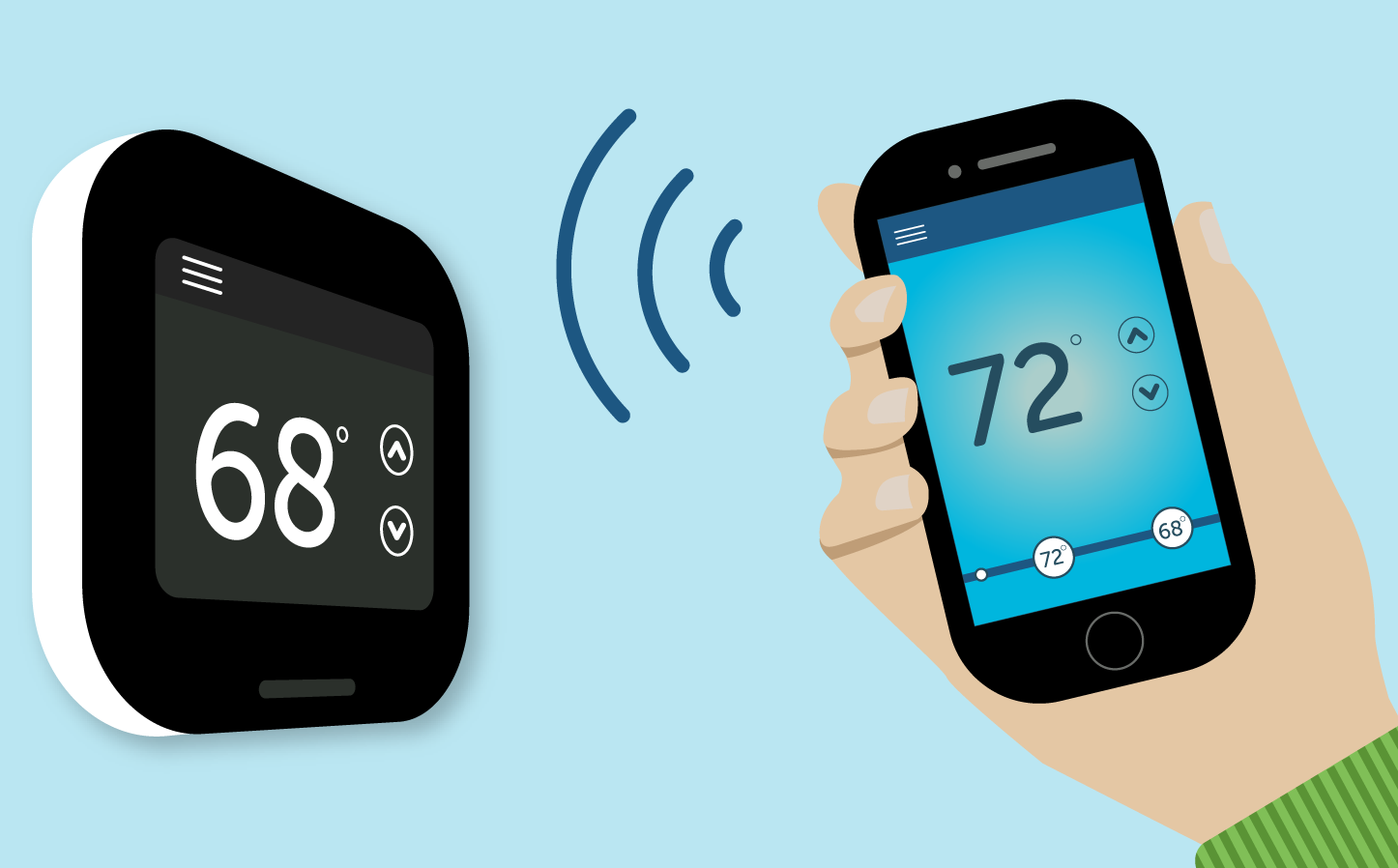
Is a smart thermostat worth buying?
With a smart thermostat, you can make the most of your heating & cooling system without wasting money or energy.
What is a smart thermostat?
A smart thermostat, also known as a connected or communicating thermostat, allows you to create automatic and programmable temperature settings based on daily schedules, weather conditions, and heating and cooling needs. Some Wi-Fi thermostats have this advanced functionality, but not all do.
Traditionally, during the summer months, you may set your thermostat to a warmer temperature while you are away so you do not waste energy (and money). To do this, you might program your thermostat to come on a few minutes before you arrive home or you might just manually turn it down when you get home.
What if you could use your phone to tell your thermostat you were on your way home? Or what if your thermostat could sense when you were close to home and calculate the optimal time to make your home cool and cozy for your arrival? A thermostat might seem to be a basic feature of your home, but it can have a big impact on your energy bills. Almost half of monthly energy costs are controlled by your thermostat—a smart thermostat can help reduce your energy bills.
Why not just continue to use a manual or a standard programmable thermostat?
The advantage of a smart thermostat is its ability to learn a household’s patterns and adjust heating and cooling according to when a home is occupied or is about to be occupied. This reduces the use of heating and cooling systems when nobody is home for significant periods of time.
Standard programmable thermostats save energy only if they are programmed correctly. Studies have shown that most residential users never program them, or they use the home function to override the programming. According to a 2010 survey from the Lawrence Berkeley National Laboratory, 89% of respondents rarely or never used their programmable thermostats to set a weekday or weekend program.
If you’re one of the few who are extremely diligent about monitoring and using their thermostat, you might not see huge savings from switching to a smart thermostat. But the extra benefits, such as the weekly and monthly energy reports and remote access that you get with smart thermostats might make the switch right for you!

Recent Comments